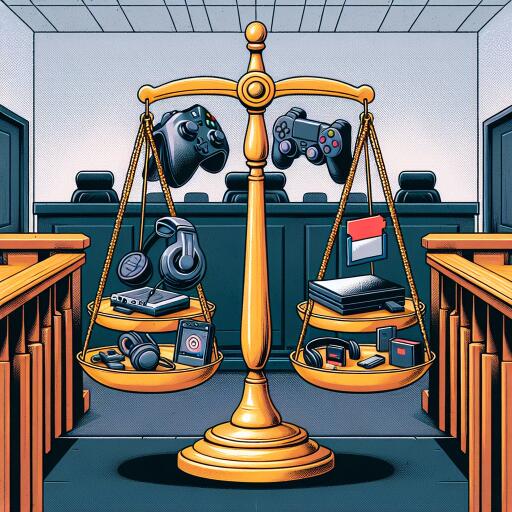PlayStation Loses Legal Battle Over Third-Party Game Add-Ons
Sony has recently faced a significant legal setback as the European Court of Justice ruled against its attempt to prevent third-party add-ons from being sold for its PlayStation games. This decision centers around the controversial Action Replay cheat software marketed by the UK-based company, Datel.
The legal dispute began in 2012, with Sony alleging that Datel’s software infringed upon its copyright. Sony argued that because Datel’s add-ons utilized its source code, the company was in breach of copyright laws under EU legislation. However, this claim was ultimately dismissed by the European Court of Justice.
In their ruling, the judges clarified that Datel’s software does not alter or reproduce Sony’s object or source code, nor the internal structure and organization of its software. Instead, it “merely changes the content of the variables temporarily transferred by Sony’s games to the console’s RAM, which are used during the running of the game.”
The court elaborated that the EU directive in question safeguards only the intellectual creation as it is mirrored in the text of the source code and object code of the computer program. The judgment specified that the variable data content transferred to the RAM, as executed by a program, does not fall under the protection offered by this directive. The court’s interpretation hinges on the premise that this data does not allow a program to be reproduced or newly created.
This decision was hinted at earlier in the year when Advocate General Maciej Szpunar provided a non-binding opinion on the case. He asserted that it is not illegal to utilize copyrighted material in ways that deviate from the creator’s original intentions. Drawing an interesting analogy, Szpunar noted, “The author of a detective novel cannot prevent the reader from skipping to the end of the novel to find out who the killer is, even if that would spoil the pleasure of reading and ruin the author’s efforts to maintain suspense.”
This case underlines a broader conversation within the gaming industry regarding third-party modifications and the extent of control original developers can wield over their creations. It raises compelling questions about user rights and the prerogatives developers have over how their creations are experienced by the public.
In related news, this ruling comes at a time when the gaming industry is facing other critical challenges. Notably, former PlayStation executive Shawn Layden has raised questions about the sustainability of the console industry’s business model. Layden, who once served as the CEO of Sony Interactive Entertainment America and headed Worldwide Studios before his departure in 2019, was asked about the viability of the industry’s current trajectory given the increasing development costs linked to ever more powerful hardware.
Layden stressed the pressure faced by the sector, stating, “We’ve done these things this way for 30 years. Every generation those costs went up and we realigned with it. We’ve reached the precipice now, where the center can’t hold; we cannot continue to do things that we have done before.”
It’s an era marked by both potential and perils for developers and console makers; innovation remains necessary, but the financial realities can’t be ignored. The legal ruling on third-party add-ons could usher in new business opportunities and technological advances, but also poses risks to existing revenue models based on exclusivity and control over gaming ecosystems.
The gaming community waits with bated breath to see how this ruling will impact the industry. For Sony, Datel, and other stakeholders, it’s a pivotal moment. This outcome may lead the charge towards more player freedom and flexibility, potentially reshaping how games are developed and distributed. Importantly, it sets a precedent for future legal debates on similar matters.










